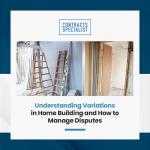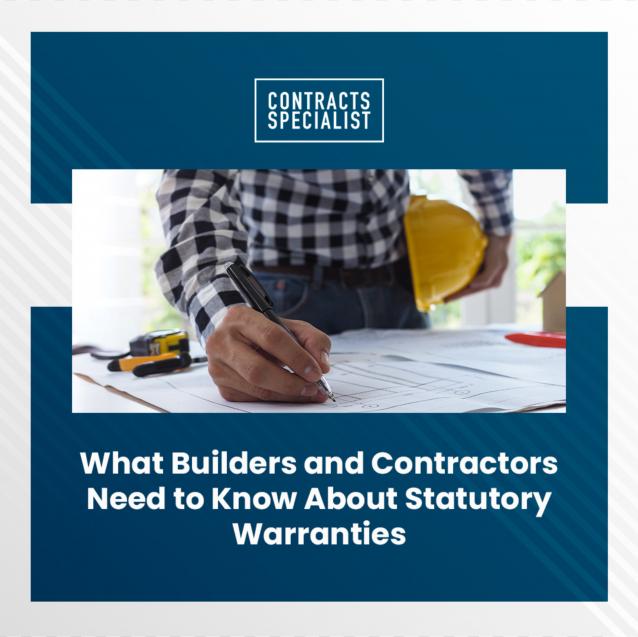
Understanding Variations in Home Building and How to Manage Disputes
By Contracts Specialist|March 22, 2023
As a homeowner, it is important to understand what variations are when it comes to building your home. Variations are changes or alterations made to the work, which are outside of, or contrary to, those specified in the scope of works. These can include changes to the design, materials, quantities, quality, work sequence, and scope of work. Both the homeowner and the builder may request for variations, as long as they follow the proper procedure laid out in their construction contract, and both parties agree on the proposed variations.
Examples of variations in residential construction in NSW can include additional materials and installations, additional work to comply with government regulations, changes in the price of materials, omissions from the scope of works, additional certification and design, changes to the plans, additional insurance, and additions to the scope of works.
Variations are not inherently wrong, but they can become a source of dispute if not properly addressed. The most common variations issue that clients seek advice on is whether or not variations proposed by the builder should be allowed, while the most common variations disputes are those having to do with unconsented deviations from the plans and specifications.
If a homeowner does not agree with the variations proposed by the builder, there are procedures laid out in the contract that can be followed, such as sending a breach notice and undergoing a dispute resolution procedure. If the dispute remains unresolved, the matter can be taken to the Office of Fair Trading, the NSW Civil and Administrative Tribunal, and the courts.
If a homeowner needs assistance in resolving a variations dispute, they can seek the advice of a specialist construction lawyer. It is important to understand the variations process and to follow the proper procedures in order to avoid disputes and ensure that any changes made to the work are properly documented and agreed upon by both parties.
Examples of variations in residential construction in NSW can include additional materials and installations, additional work to comply with government regulations, changes in the price of materials, omissions from the scope of works, additional certification and design, changes to the plans, additional insurance, and additions to the scope of works.
Variations are not inherently wrong, but they can become a source of dispute if not properly addressed. The most common variations issue that clients seek advice on is whether or not variations proposed by the builder should be allowed, while the most common variations disputes are those having to do with unconsented deviations from the plans and specifications.
If a homeowner does not agree with the variations proposed by the builder, there are procedures laid out in the contract that can be followed, such as sending a breach notice and undergoing a dispute resolution procedure. If the dispute remains unresolved, the matter can be taken to the Office of Fair Trading, the NSW Civil and Administrative Tribunal, and the courts.
If a homeowner needs assistance in resolving a variations dispute, they can seek the advice of a specialist construction lawyer. It is important to understand the variations process and to follow the proper procedures in order to avoid disputes and ensure that any changes made to the work are properly documented and agreed upon by both parties.



